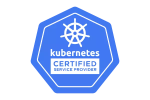What is multicloud?
As digital infrastructures diversify, multicloud is emerging as a strategic solution that allows companies to optimise their resources and enhance the security of their data. Discover what this approach entails, its advantages, how it works, and the solutions it offers.

Multicloud: definition
Multicloud is an IT strategy that involves using multiple cloud computing services from different providers. This approach enables companies to leverage the specific features of each type of cloud, tailored to the particular needs of their applications, data management, and security requirements. By combining various cloud environments, multicloud creates a flexible and customisable infrastructure, providing better resource allocation and increased resilience to support business operations.
Why use a multicloud strategy?
As digital infrastructures become more complex, companies face new and varied challenges. A multicloud strategy thus presents itself as an effective solution to address these growing challenges.
Meeting diverse business requirements
With increasingly diverse applications, companies must adapt their cloud infrastructures to meet the specific needs of each service. A multicloud architecture offers the necessary flexibility to choose suitable services based on the business requirements specific to each application, whether for storage, computing power, or security.
Ensuring compliance and security of sensitive data
Data protection regulations are constantly evolving, particularly in heavily regulated sectors such as finance and healthcare. Thus, multicloud enables companies to distribute data and implement specific security solutions for each cloud environment, thereby ensuring compliance with privacy standards.
Optimising resources in the face of budget constraints
Technology budgets are constantly evolving, and companies are seeking cost-effective solutions. Multicloud allows for more precise cost management, offering the possibility to select the most economical services for each need. This approach helps companies minimise expenses while maintaining a high level of performance.
The advantages of multicloud
Adopting a multicloud strategy provides businesses with increased flexibility and resilience, while meeting modern demands for cost, security, and performance. Here are the main advantages that multicloud offers.
Flexibility and adaptation to specific needs
Multicloud allows businesses to select specific services for each application, leveraging the unique benefits of each cloud provider. This diversity of options helps teams, particularly DevOps teams, to tailor their solutions according to business needs: for example, a PaaS provider may be preferred for applications requiring integrated development environments, while another may be better suited for databases. You can also, if necessary, take virtualization actions to boost your business.
Cost and performance optimisation
Thanks to multicloud, businesses can optimise their budgets by selecting the most cost-effective services for each task. By combining the most advantageous rates for storage, computing power, or networking, they maximise their return on investment while ensuring high performance. This cost-effective approach proves particularly valuable for businesses looking to reduce their expenses without compromising the quality of their services.
Enhanced security and compliance
Multicloud allows businesses to manage their data according to the security and compliance requirements specific to each type of information. Sensitive data can be hosted in a highly secure cloud, while less critical applications are deployed in a public environment. This distribution of resources helps businesses comply with local and international data protection regulations, a crucial issue for regulated sectors.
Resilience and business continuity
By spreading their resources across multiple platforms, businesses limit the risks of service interruption. In the event of a failure with one provider, they can transfer their operations to another cloud, thus ensuring the continuity of their operations and a quick recovery after a disaster. Serverless architectures and containerisation solutions can also be implemented to ensure flexible and automated resource management, thereby enhancing system resilience against failures and cyber threats.
Independence from suppliers
By diversifying their providers, businesses avoid becoming dependent on a single platform, a situation known as "vendor lock-in." This independence allows them to negotiate more advantageous service terms and to more easily adapt their architecture to new technologies, without facing the constraints imposed by a single provider.
Accessibility and mobility of applications
Multicloud facilitates access to applications from different environments, allowing teams and partners to access resources remotely. This approach thus promotes productivity and flexibility, especially in a remote work context and for cloud native applications. Thanks to this increased accessibility, companies can mobilise their applications and teams wherever they are, contributing to a more dynamic and connected work environment.
The pillars of multicloud architecture
A multicloud environment relies on a combination of sophisticated architectures and tools that enable companies to manage their resources across multiple clouds. This approach ensures the consistency and interoperability of applications, data, and services in a distributed ecosystem, thanks to key elements that ensure its proper functioning.
Orchestration and service management
Orchestration is a central element in a multicloud architecture. It allows for the coordination of different applications, databases, and storage systems to optimise performance and manage costs effectively. For example, a company can use a centralised dashboard to monitor the status of its applications across multiple clouds in real-time, thus ensuring optimal control of all available resources.
Security and identity management
Security is essential in multicloud to protect sensitive data distributed across multiple platforms. To manage access and prevent cyberattacks, companies use solutions like single sign-on (SSO), which allows users to access multiple applications with a single identifier. In the case of a healthcare organisation, for example, it can set up secure access to medical records to ensure that they are reserved for authorised individuals.
Network integration
To ensure smooth operation, clouds must be interconnected effectively, allowing applications to communicate, exchange data, and function together as an integrated network. Solutions such as software-defined networks (SDN) and multicloud VPNs facilitate these exchanges. For example, a global company can use a multicloud VPN to ensure a secure connection between its dispersed offices and applications hosted on multiple clouds.
Comparison between multicloud and hybrid cloud
The hybrid cloud and multicloud are often confused, but each serves different purposes. The hybrid cloud is characterised by a combined operation between a private cloud and a public cloud, often relying on an IaaS infrastructure to provide increased flexibility. This allows companies to store their sensitive data in a secure environment while using the flexible power of the public cloud for other needs. This approach is particularly suitable for companies that wish to maintain strict control over certain resources while benefiting from the flexibility of the cloud. In this context, the hybrid cloud and multicloud solutions offer organisations complementary strategies to optimise their performance, enhance their security, and adapt to the demands of their digital ecosystems.
Hybrid cloud advantages
- Increased security for sensitive data, kept in a protected private environment.
- Enhanced control over critical internal resources.
- Flexibility to integrate applications that require different security and performance environments.
Depending on their needs, some companies choose to combine hybrid and multicloud approaches to best adapt their cloud infrastructure.
Hybrid cloud advantages
Increased security for sensitive data, kept in a protected private environment. Enhanced control over critical internal resources. Flexibility to integrate applications that require different security and performance environments.
Depending on their needs, some companies choose to combine hybrid and multicloud approaches to best adapt their cloud infrastructure.
Solutions by OVHcloud
OVHcloud offers a complete range of cloud solutions designed to meet the needs of companies adopting a multicloud strategy. These solutions simplify infrastructure management, ensure data security, and optimise the performance of applications distributed across multiple cloud environments.

VMware on OVHcloud
Easily migrate your VMware environments to the private cloud without modifying your applications. VMware on OVHcloud allows you to keep your existing tools and configurations, facilitating centralised and secure management of your multicloud resources. Ideal for companies seeking a smooth transition to multicloud while maintaining control over their infrastructure.

Managed Kubernetes Service
Orchestrate your containerized applications with Managed Kubernetes Service. This solution enables easy deployment, management, and scaling of containers across multiple clouds, ensuring flexibility and scalability in a multicloud environment. Ideal for businesses looking to simplify the management of their containers while maximizing their agility.

Managed Rancher Service
With OVHcloud's Managed Rancher, you benefit from a complete solution to deploy and manage your Kubernetes clusters effectively and securely on Public Cloud. The advantages include rapid and simplified implementation, automated management of updates and security patches, as well as detailed monitoring and analysis of your resources. Additionally, you can distribute and manage your hosted Kubernetes platforms in a multicloud environment, reduce your dependency risks, and mitigate the risk of outages. Finally, the solution allows you to focus on developing your applications while benefiting from dedicated expertise and support to help you optimize your Kubernetes environments.

OVHcloud Load Balancer
Optimize traffic distribution between your multicloud applications with OVHcloud's Load Balancer. This solution ensures intelligent workload distribution, allowing optimal performance and availability even during demand spikes. Ideal for ensuring the resilience and efficiency of your applications spread across multiple clouds.